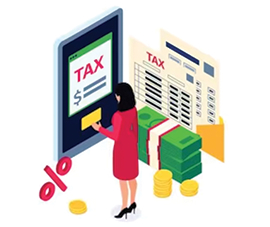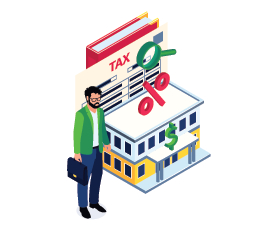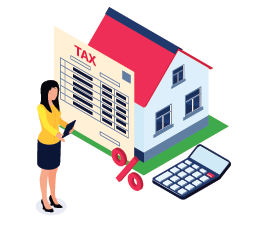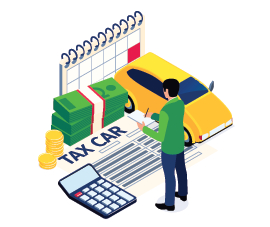
Planning to start a business?
Owning a business can be a challenging but rewarding experience. As a business owner, you have the opportunity to be your own boss, set your own schedule, and pursue your passion. However, running a successful business requires a lot of hard work, dedication, and attention to detail.
Business Checklist
Here are some key things to consider if you're thinking about owning a business:
01
Determine your Business Idea

You should have a clear idea of what kind of business you want to start. Conduct market research to ensure there is demand for your product or service.
02
Create a Business Plan

A well-crafted business plan can help you stay focused on your goals and provide a roadmap for success. It should include a detailed analysis of your target market, competitors, marketing strategy, financial projections, and more.
03
Secure Funding

You'll need to find funding for your business, which can come from a variety of sources, including personal savings, loans, grants, or investors.
04
Register your Business

You'll need to register your business with the appropriate government agencies and obtain any necessary permits and licenses.
05
Build a Team

As your business grows, you may need to hire employees or work with contractors to help you manage your workload.
06
Market your Business

You'll need to develop a marketing strategy to attract customers and promote your business. This may include social media marketing, advertising, public relations, and more.
07
Stay Organized

Running a business involves a lot of paperwork and record-keeping. You'll need to stay organized and keep accurate records of your finances, inventory, and other important details.
Overall, owning a business can be a challenging but fulfilling experience. With the right planning, resources, and hard work, you can build a successful and profitable business.
Types of Business Structures
Sole Proprietorship
This is the simplest form of business, owned and operated by a single individual. The owner has complete control over the business and is personally responsible for its liabilities.
Partnership
A partnership is formed when two or more individuals come together to carry out a business. Partners contribute capital, share profits and losses, and jointly manage the business.
Private Limited Company
A private limited company is a separate legal entity with limited liability. It requires a minimum of two shareholders and can have up to 200 shareholders. The ownership is in the form of shares, and the company is managed by directors.
Public Limited Company
A public limited company is similar to a private limited company but can raise capital from the public through the sale of shares. It must comply with more stringent regulatory requirements and can have an unlimited number of shareholders.
Joint Venture
A joint venture is a business arrangement where two or more entities come together to collaborate on a specific project or venture. They pool resources, share risks, and share profits or losses as per the agreed terms.
Franchise
Franchising involves the licensing of a business model, brand, and intellectual property rights to a franchisee. The franchisee operates a business under the established brand and pays royalties or fees to the franchisor.
Taxes to consider in a Business
There are several types of taxes that businesses need to consider

Income Tax
This is a tax on the profits earned by a business. All businesses are required to pay income tax on their profits, whether they are a sole proprietorship, partnership, or corporation.

Sales Tax
This is a tax that is imposed on the sale of goods and services. Depending on the jurisdiction, businesses may be required to collect sales tax on their sales and remit it to the government.

Employment Taxes
These are taxes that are imposed on wages and salaries paid to employees. Employers are responsible for withholding these taxes from their employees' paychecks and remitting them to the government.

Property Tax
This is a tax on real estate and other tangible property owned by a business. It is usually assessed by the local government and can vary depending on the location and value of the property.

Excise Tax
This is a tax on certain goods and services, such as gasoline, tobacco, and alcohol. Businesses that sell these products may be required to collect and remit excise taxes to the government.

Self-Employment Tax
This is a tax that is paid by self-employed individuals, such as freelancers and independent contractors, to cover their Social Security and Medicare taxes.
It is important for businesses to understand and comply with all applicable tax laws and regulations to avoid penalties and legal issues. It is recommended to consult with a tax professional or accountant for specific guidance on tax requirements for your business.